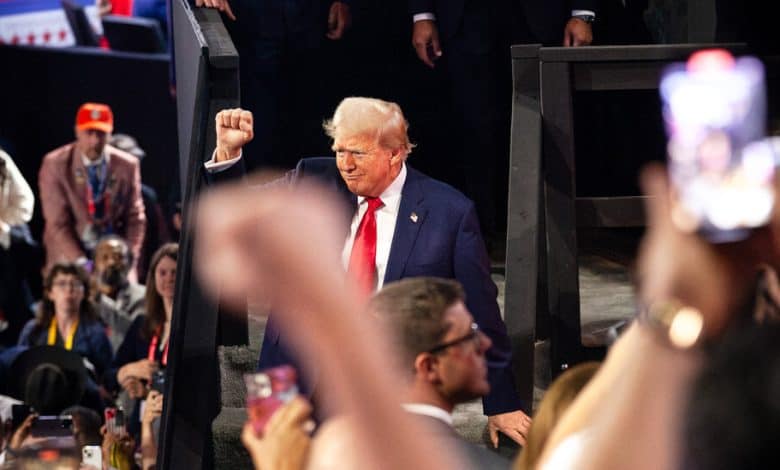Is the Populism of the Trump G.O.P. Real or Fake?

Before last week’s Republican convention, Donald Trump seemed to be moving away from the populism that characterized his 2016 campaign. “This time around, the former president isn’t even pretending to stand up to corporate power,” Rogé Karma observed in The Atlantic. “He’s defending big business, cozying up to billionaires, and wooing C.E.O.s.”
When Mr. Trump named Senator JD Vance of Ohio as his running mate, though, pundits quickly concluded that he was doubling down on populism. Mr. Vance has been a leading critic of Reagan-Bush policy orthodoxy in the G.O.P., has expressed skepticism of further corporate tax cuts and has even voiced approval of President Biden’s Federal Trade Commission chair, Lina Khan, whose aggressive antitrust enforcement has angered big business. In his convention speech, Mr. Vance denounced NAFTA and China trade deals and promised to prioritize American workers over multinational corporations.
On the other hand, in a long interview with Bloomberg (conducted in late June) that came out after the announcement of Mr. Vance’s selection, Mr. Trump hardly sounded like a firebrand economic populist. He floated the idea of reducing corporate tax rates to 15 percent and said he’d consider the JPMorgan Chase C.E.O., Jamie Dimon, as a potential Treasury secretary.
Mr. Trump’s own convention speech hardly clarified his policy priorities. He simultaneously promised to cut taxes, leave Social Security unchanged, reduce the deficit, raise tariffs and lower inflation.
Mr. Trump’s Republican Party thus presents a paradox. On the one hand, Mr. Trump has clearly succeeded in uniting the party around him. At the same time, the Republican policy conversation has only grown more diffuse — if not confusing and cacophonous. In other words, Mr. Trump’s consolidated control of the Republican Party has had the surprising effect of making its policies more, not less, unsettled.
We saw plenty of evidence of this throughout the Republican convention and in the party platform. Speakers on the first day alone ranged from anti-union, pro-free-trade, low-taxes Senator Ron Johnson to Teamsters union President Sean O’Brien, who excoriated Amazon, Uber and other giant corporations for exploiting workers and selling out national interests.